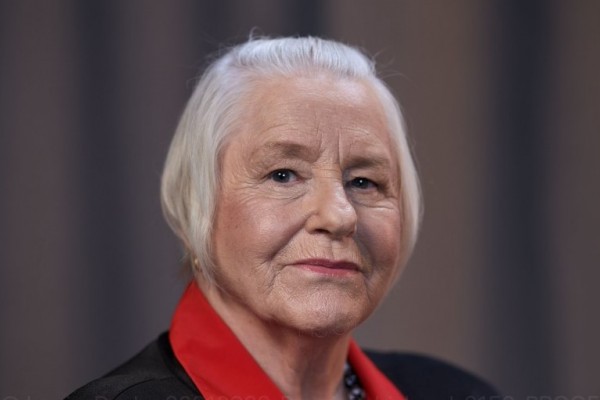B.C. Court Ignores Aboriginal Women’s Plea
According to the Aboriginal Justice Implementation Commission (AJIC) report of 1999, “Aboriginal women are the victims of racism, of sexism, and of unconscionable levels of domestic violence. The justice system has done little to protect them from any of these assaults.” Nearly five years on, events in Watson Lake, Yukon, lead many to wonder what, if anything, has changed.
On February 22, B.C. court judge E.D. Schmidt sentenced Daniel Morris, a Kaska man, and former chief of the Liard First Nation (LFN), to two years probation on four charges related to what the Liard Aboriginal Women’s Society (LAWS) describes as “a horrific act of domestic violence.” Judge Schmidt’s decision, though supported by Kaska Tribal Council Chief Hammond Dick and other Kaska leaders, was a blow to many in the community who see the leniency of the sentence as a threat to the safety of women.
“The pain and anguish caused by this offense place a tremendous weight of worry and anxiety on the shoulders of the victim, the children and the community at large,” said LAWS in a media release. “Our trust and confidence in the justice system and the administration of justice has been shattered.”
“It came as a shock,” says LAWS spokesperson Anne Maje Raider. “We had not expected this decision at all.”
Watson Lake: Spousal Abuse Capital of the Yukon
Watson Lake is known, if it is known at all, for its “sign-post forest,” a vacant lot on the Alaska Highway where tourists nail up signs proclaiming the distance to their home towns. Little else is noteworthy about the place. Like most Yukon communities, it sits surrounded by pristine wilderness, suffers from a depressed economy, and is all but totally reliant on a government it loves to hate.
But this small town (population 1,700) just north of the B.C. border is distinguished by one bleak statistic: Watson Lake has four times the Yukon average of spousal assaults in a territory whose rate already tops the country.
Even against this violent backdrop, Morris’s crime is shockingly brutal. He pursued his common-law wife, Elizabeth Dickson, and another man, threatened them with a loaded rifle, and dragged Dickson to a gravel pit where he beat and sexually assaulted her for two hours. When police arrived at the scene, the victim expressed the belief that by showing up they had saved her life. As a result of her injuries, Dickson spent three days in hospital, and suffers continuing vision problems.
The over-representation of First Nations in Canadian prisons is a central theme of the AJIC report. As Judge Schmidt puts it, “our prisons are too full of Aboriginal offenders.” Centuries of colonialism have produced an Aboriginal population battered by alcohol, poverty and cultural dislocation, and an overwhelmingly white justice system laden with systemic bias. As a result, Aboriginal people make up a disproportional 13 per cent of the country’s prison population.
Since 1999, judges have been instructed to consider Native status when sentencing. As Judge Schmidt points out, they must further take into account the accused’s experience of “poverty, racism, substance abuse, family breakdown, and domestic violence,” and must enquire what options exist in the community for restorative, rather than retributive, justice.
The Morris Case
Judge Schmidt also took into account the fact that Morris, like many Native children of his generation, attended a “mission school.” These schools existed as much to colonialize Aboriginal people as to educate them. Children were punished for speaking their native language, kept separate from siblings and, in far too many cases, physically and sexually abused. Correct as he was to consider all of these things in passing sentence on Morris, there were a number of other factors Judge Schmidt failed to mention, or, in some cases, mentioned but failed to give equal weight. Most notably, his sentencing decision barely considers a letter from LAWS, signed by 49 Kaska women, calling for a quick decision, and a custodial sentence.
Despite LAWS’s plea that “a further delay in the sentencing process will only intensify the fear within the community and make a volatile situation worse,” the sentencing hearing was put off for seven months. Judge Schmidt called upon Dena Kéh, the Kaska justice program, to administer the restorative sentence, even though the LAWS letter noted that “serious assaults, such as this case, fall outside the policy provisions of Dena Kéh.” Perhaps most telling of all, the judge dismissed as “politics” that part of the LAWS letter which called into question the involvement of First Nation leadership in the sentencing decision.
Kaska Women Fear Male Leaders
The court heard Chief Dick’s representation on behalf of his friend, Daniel Morris, despite the LAWS letter’s claim that “Kaska women fear that the decision makers within these political offices are too close to the issue to maintain objectivity,” and its passionate cry that “Kaska women fear that the Aboriginal Leadership will use their power and authority to retaliate against those who find the courage to speak out against violence. Kaska women fear that the political leadership and their involvement in this case will only serve to further ostracize, isolate and subject our families to further oppression.”
LAWS’s claim that a predominantly male leadership may abuse its power over Kaska women echoes the AJIC report, which states: “Most chiefs and council members are male and often exhibit bias in favour of the male partner in a domestic abuse situation.”
Another factor not mentioned in Judge Schmidt’s sentencing decision is Morris’s failure to take responsibility for his actions. Addressing the court before sentence was passed, the accused tried to share the blame with his victims, saying “there were three parties involved.” Morris complained that “Women have everything. They have the money. They have the societies. They have everything. Men don’t have anything.” And, as the LAWS letter points out, his refusal to resign as chief even after pleading guilty to these crimes “demonstrates a total disregard for the Kaska community and women.”
Restorative Justice vs. the Need to Protect Victims from Spousal Assault
The court’s failure to give weight to this eloquent plea from so many Kaska women is a sad example of what the AJIC report describes as “systemic discrimination” on the basis of race and sex. This is not to suggest that the man Dennis Schmidt is guilty of bias against Aboriginal women – indeed, he speaks with passion and sensitivity about Kaska people and justice – but in the person of The Judge, he serves a biased system. As The Judge, he is constrained to consider the part of AJIC that calls for restorative justice, but not to observe the equally strong wording about “the need to protect and assist victims, and for the use of strong measures in dealing with [spousal assault] offenders.”
In the months since Daniel Morris beat, threatened and raped Elizabeth Dickson, Watson Lake has been taking some first steps toward healing. Judge Schmidt notes that the town recently hosted a conference on domestic violence called “Breaking the Silence.” LAWS’s call for jail time for Morris is not, Maje Raider insists, about taking vengeance. “This is not about Daniel. It’s about his crime. Daniel is a good person, but he needs to heal. And he needs to be taken out of the community to do that.”
All over the Yukon and across Canada voices have been raised demanding a review of the Morris case. On March 24, the B.C. Attorney General’s office informed Daniel Morris that it has filed notice to appeal his sentence. The crown had originally asked for a prison term of 18 months.
In 1998, after Roman Catholic Bishop Hubert O’Connor bargained for a talking circle, thereby escaping sentencing on charges of sexual assault against Native women, Tina Beads of the Aboriginal Women’s Action Network said, “Restorative justice must never be used in cases of violence against women. Until we can imagine a system that is free of racism and sexism this remains true.” Watson Lake has begun to imagine such a system. Making it real is going to be an uphill fight, but it’s not one they can afford to lose.
Al Pope is a journalist and author who lives near Whitehorse. His work has appeared in the New Quarterly, the Antigonish Review, Urban Coyote, Out of Service, MUSHING, Schlittenhundmagazin and the Yukon News, as well as on CBC Radio. His column, “Nordicity,” won the National Post’s Best Columnist prize at the 2002 Ma Murray Awards. His first novel, Bad Latitudes, was released this May by Turnstone Press.
This article appeared in the May/June 2004 issue of Canadian Dimension .










